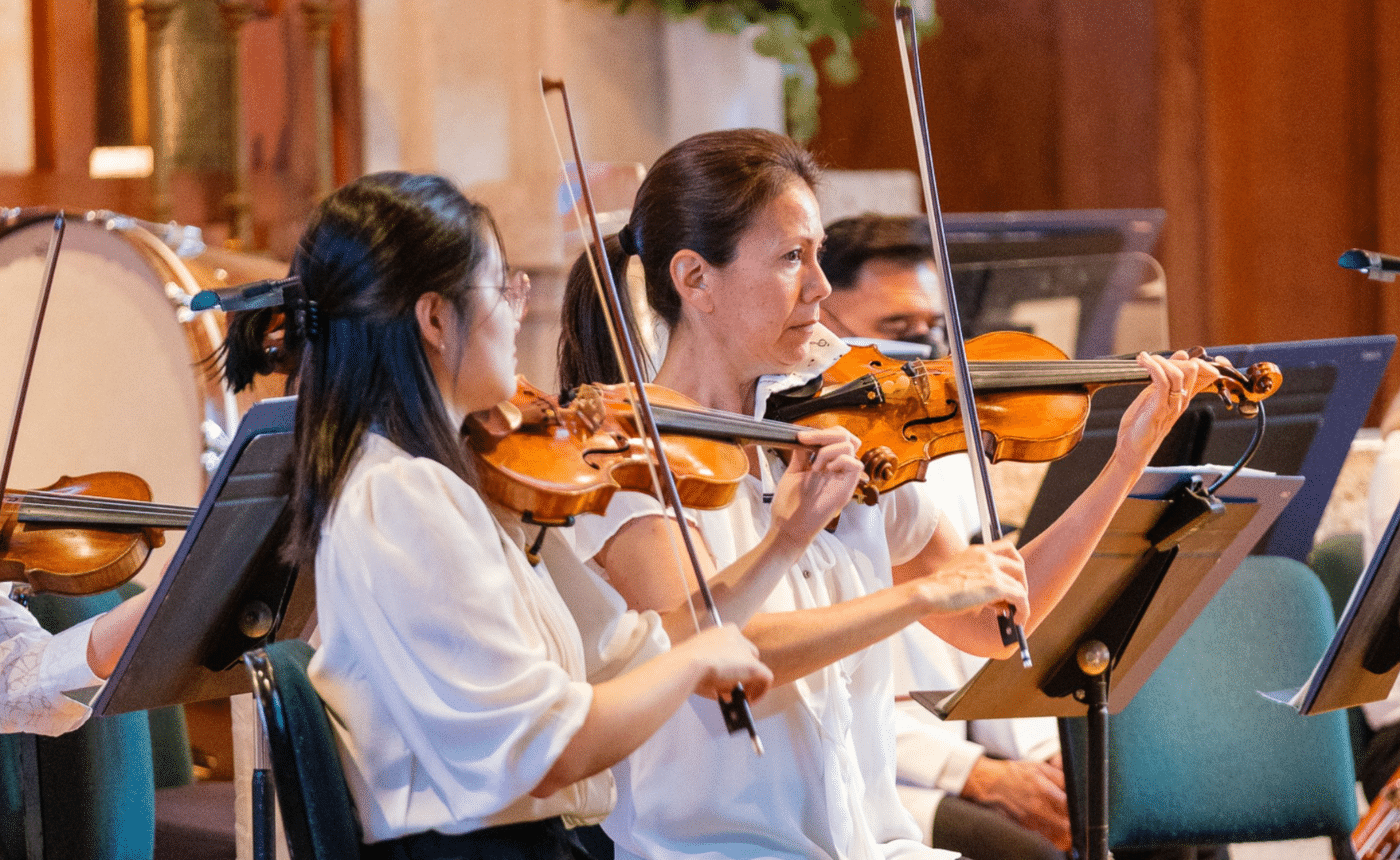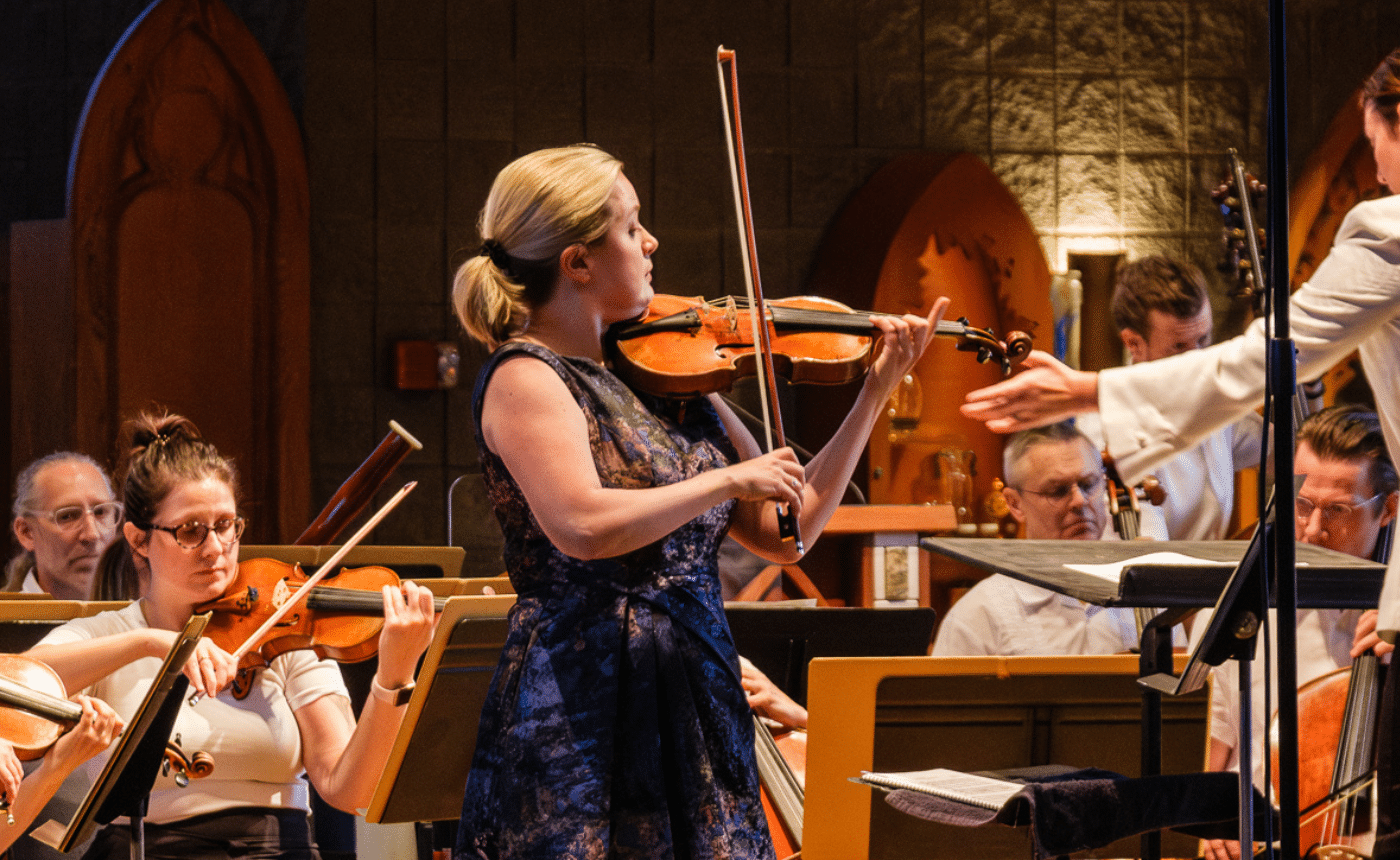Bartók – Suite from The Miraculous Mandarin
Bela Bartók (1881 – 1945): Suite from The Miraculous Mandarin
Instrumentation: 2 flutes, 2nd and 3rd doubling piccolo, 3 oboes, 3rd doubling English horn, 3 clarinets, 2nd doubling E-flat clarinet, 3rd doubling bass clarinet, 3 bassoons, 3rd doubling contrabassoon; 4 horns, 3 trumpets, 3 trombones, tuba; timpani, snare drum, tam tam, triangle, xylophone, crash cymbal, suspended cymbal, bass drum, tenor drum, harpsichord, celeste, piano, organ; strings
Performance Time: 21 minutes
Background
Born in 1881 in a region that is now part of Rumania, the ethnically Hungarian Bela Bartók was one of classical music’s transformative figures — a man whose commitment to esthetic principles ran as deep as his talent. His creative breakthroughs came precisely when they were needed, in the first half of the 20th century, as music was struggling to find a way to be modern.
Both Bartók and The Miraculous Mandarin invite comparison with their parallels in music history: Igor Stravinsky and his Rite of Spring. Though he was born just a year after Bartók and was neither more nor less innovative or “difficult,” the Russian-born Stravinsky occupied a very different place in world culture. Cosmopolitan, confident and effortlessly authoritative, he took his own importance for granted and lived in the expectation of success. The public responded accordingly, making him an international celebrity whose role as a taste-making genius and seminal modernist was understood even by those who never heard a note he’d written. Compared to that kind of fame, Bartók labored in obscurity, his career upheld by a circle of colleagues who understood the enormity of his achievement — most notably the conductor Dimitri Mitropoulos, who was responsible for some of Bartók ‘s most important commissions.
The comparison is even more striking when we consider the respective premieres of Rite of Spring and The Miraculous Mandarin — one a succés de scandale, the other a plain old scandal. The epoch-making events surrounding Stravinsky’s Rite comprise one of the most famous episodes in music history. Its 1913 opening-night audience was goaded to the point of rioting — a rarity at a ballet performance even among finicky Parisians. Confronted with strange dissonances, complex polyrhythms and a brutal pagan ritual enacted on stage, attendees screamed their derision, drowning out the orchestra. Seatmates who had never met before broke into fistfights. A year later, after the score had further exposure, Stravinsky was a hero of music and Rite was universally acclaimed.
Composition of The Miraculous Mandarin began in 1918, five years after the Rite riot, but by the time of its premiere in Germany in 1926, Stravinsky’s breakthrough was old news. Mandarin is a ballet similar in scope to Rite, but precisely opposite in theme: where Rite plunges us into a tribal culture, with nature and death ever close to the human bone, Mandarin is a disturbing parable of modern urban existence and the ceaseless grind of materialism. It offers — perhaps secondarily — hope through the redemptive power of love. Both ballets have elements of folk magic, but in Mandarin they oddly inhere in a symbol co-opted from Asia: the Chinese mandarin, icon of limitless wealth, dangerous power and untouchability. The ballet’s scenario pours other cultural elements into the shadowy mandarin, including Jewish folklore’s invulnerable dybbuk, the stone guest we know from Don Giovanni, and even zombie lore, now back by popular demand.
What to Listen For
Bartók ‘s major works, particularly his two piano concertos, six string quartets and opera Bluebeard, are recognized as 20th-century masterpieces that form a cornerstone of the post-Romantic repertory. In his ballet suite The Miraculous Mandarin — one of his personal favorites — we hear the essential traits that made his music revolutionary and influential. Listen, for example, to the sprung intervals that were once considered so dissonant as to be unlistenable. In Mandarin we repeatedly hear the disturbingly hollow sound of wide-open augmented octaves, along with their opposite: claustrophobic minor seconds, the closest neighbors on a piano keyboard, giving rise to feelings of confinement and menace.
Propelled by violence and sex, the ballet’s story is a grim one, set in an anonymous urban slum. There, three tramps have schemed to eke out a living by entrapping and jumping likely victims whom they lure through the forced enticements of another victim — a pretty girl. After the first two marks are tossed back on the street (no cash), a third — the mandarin — wanders in, and despite his frightening, mysterious appearance, the girl dances for him. He becomes violently obsessed with her, making him an easy mark for the tramps. But after they rob him, he proves harder to kill than Steven Seagal. When the zombie-like mandarin survives their attempts to suffocate him, beat him and hang him, his body begins to glow an inhuman blue. The girl comprehends and signals her henchmen to set the mandarin free, then allows him to embrace her passionately — whereupon his wounds become mortal and he dies.
The orchestral suite of The Miraculous Mandarin encompasses only two-thirds of this harsh narrative, omitting the mandarin’s graphic death scene. But the drama is vividly suggested by Bartók ‘s musical gestures and through its instrumentally coded characters and themes: the girl’s seductiveness represented by solo clarinet (as in Richard Strauss’ Salome), the callow, broke victim represented by solo oboe, and the rake’s and mandarin’s sexual gyrations heard in lurid glissandos on the slide trombone (as in Ravel’s Bolero and the prelude to Strauss’ Der Rosenkavalier, to name just twoother examples). And like many other composers, Bartók used the traditional pentatonic scale to create an Asian sound (in this case, to portray the mandarin).
So what made the Cologne premiere of The Miraculous Mandarin, with its superb score and intense drama, a cause for outraged condemnation? “At the end of the performance there was a concert of whistling and catcalls,” wrote Eugen Szenkár, who conducted. “The uproar was so deafening and lengthy that the fire curtain had to be brought down. Nevertheless, we endured it and weren’t afraid to appear in front of the curtain, at which point the whistles resumed with a vengeance.”
Are we ready for The Miraculous Mandarin? There’s nothing in its scenario that’s not closely paralleled in, say, Alban Berg’s opera Lulu, or in that new thriller down at the multiplex. But never mind the plot details. The best way to hear this brilliant orchestral suite is without preconception — simply knowing that it is a gritty, highly sexualized tale told by a composer of rare genius.












